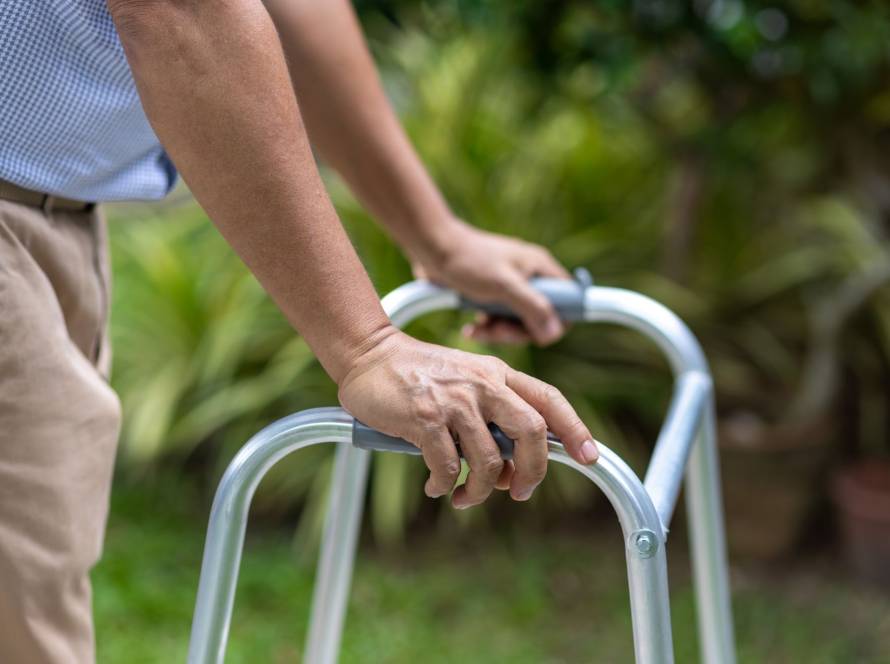A third of adults in America can’t get enough sleep. Yet blue zone communities tell a different story about their sleep habits. These longevity hotspots have residents who don’t just live longer, they stay active and healthy into their hundreds with natural sleep patterns.
Let’s look at how these remarkable sleep habits boost longevity and learn to adapt these proven methods to our busy modern lives. The sleep secrets of blue zones might add years to our lives, from natural body clock patterns to the benefits of afternoon rest.
Understanding blue zone sleep success
Sleep patterns in blue zones offer remarkable insights about living longer. These regions show unique sleep habits that make them different from how modern society sleeps.
Key sleep characteristics
Blue zone residents keep steady sleep schedules that naturally merge with daylight patterns. Their lifestyle includes unique elements that improve sleep quality. Strong community bonds and tight knit social circles help lower anxiety and stress. This creates perfect conditions for restful sleep.
The success of blue zone sleep comes from their natural daily routines. Residents don’t follow strict schedules, they listen to their bodys natural rhythms. Their plant based meals with minimal processed foods and sugar lead to better sleep. Foods like nuts packed with magnesium and tart cherries full of melatonin help them sleep deeper.
They handle stress through meditation, yoga and tai chi. These practices calm their minds and bodies before bed.
Life expectancy connection
Studies show strong links between blue zone sleep habits and longer life. People who have a clear sense of purpose are 33% less likely to develop sleep issues. Short naps also cut heart disease risk.
Sleeps impact on longevity becomes clear in centenarians habits. These long lived people get seven to nine hours of sleep each night. A study found that seven hours as the perfect sleep duration for a longer life. Blue zone residents mix good nighttime rest with smart daytime naps.
A clear life purpose shapes sleep quality in these regions. Research shows people who can state their life’s purpose have a 15% lower risk of early death.
Blue zone sleep success comes from their integrated approach. Daily outdoor time helps regulate circadian rhythms, while natural physical activity blends into their routine. These habits plus strong social connections and stress reduction practices create an environment where quality sleep comes naturally.
Natural sleep cycles in blue zones
Sunlight shapes how people in blue zones sleep. These communities have become skilled at lining up their daily routines with natures rhythm. This practice leads to better sleep quality and longer lives.
Sunlight and circadian rhythm
Blue zone residents sleep wake cycles respond strongly to natural light. The suns light dark cycle benefits the bodys circadian clock. Blue zone inhabitants stay awake during daylight and sleep after dark.
People in blue zones spend lots of time outdoors. Studies with 400,000 participants showed that each extra hour outside relates to less antidepressant use and reduced tiredness. This light helps reduce stress and improves how the brain works.
Evening wind down traditions
Blue zone communities adopt special evening rituals as daylight fades. Residents avoid artificial light, particularly from screens. This practice prevents their bodies from suppressing melatonin. They choose calming activities like meditation or gentle movement instead of staying up late.
Morning routines that promote better sleep
Blue zone inhabitants wake up energized at dawn. Morning sunlight helps control melatonin production. This natural process makes people alert during the day and sleep better at night. Their bodies follow natural circadian patterns.
Sleep duration and timing differences
Research shows striking differences in how people sleep in blue zones compared to modern societies.
Optimal sleep hours across blue zones
People who live to 100 in blue zones regularly get seven to nine hours of sleep. All the same, some blue zone communities do things differently, people in Ikaria often stay awake past midnight but make up for it with afternoon rest.
Blue zone residents sleep in harmony with natures rhythms. Their sleep doesn’t follow rigid modern schedules, they rest when their bodies tell them to. This flexibility doesn’t mean random sleep times. They stick to regular bedtimes and wake times, even on weekends.
Benefits of early bedtime habits
Going to bed early in blue zones leads to amazing health benefits. Studies show that steady sleep schedules associate with better grades and sharper minds. A regular bedtime routine helps people drift off faster and get more refreshing sleep.
The benefits go beyond nighttime rest. Research shows regular nappers have:
- 34% lower risk of heart disease;
- Improvements in alertness;
- Lower inflammation levels.
Blue zone residents see sleep as essential, not a luxury. They make rest a priority because they understand how it revives brain cells, repairs skin and strengthens major body systems. This mindset and their steady sleep habits add substantially to their exceptional long life.
Natural elements for quality rest
Natural elements in blue zones do way beyond the reach and influence of simple rest:
- Fresh air benefits: air quality directly shapes our sleep patterns. Blue zone residents spend most of their day outside. Their bodies benefit from breathing clean, oxygen rich air continuously. Pure air helps their bodies heal naturally and leads to deeper sleep cycles;
- Natural light exposure: natural light stands as the life blood of sleep success in blue zones;
- Outdoor activity influence: natures touch makes sleep better in blue zones. Nature’s benefits go beyond sleep. Research associates outdoor time with fewer antidepressants and happier people. Forest settings lower pulse rates, blood pressure and stress hormones more than city environments.
The power of afternoon rest
Afternoon rest is a vital part of daily life in blue zones. People there have become skilled at taking strategic naps. Research shows strong evidence linking this age old custom to better health and longer life.
Mediterranean cultures value afternoon rest deeply. The Greek island of Ikaria, where nearly one third of residents live past 90, still maintains daily naps as part of their culture. People in Sardinia and other blue zones see afternoon siestas as part of their daily routine.
Impact on nighttime sleep quality
In stark comparison to what many believe, well timed afternoon naps don’t hurt nighttime sleep. Research confirms that nappers get as much or more sleep in a 24 hour period than those who don’t nap.
Forward thinking companies now see the value. Google and Nike have created special napping spaces. This change reflects growing proof that well rested employees show more creativity and get more done.
Blue zone residents don’t see afternoon rest as a luxury, they know it’s key to health and long life. Regular nappers show less inflammation and lower cortisol levels, which suggests less stress. The practice works with your bodys natural rhythm and supports overall health without affecting night sleep.
Blue zone communities teach us valuable lessons about sleep and living longer. Their natural sleep patterns that match sunlight and seasonal changes help them rest better and live longer lives.
The secret to better sleep and a longer life isn’t found in complex routines. Natural patterns that blue zone communities have used for generations work best. Their success shows that good sleep remains one of nature’s best tools to live longer and healthier.
Learn more about:


